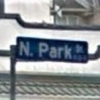Nope, I still don't have this nailed down.
Victoria's housing market, home prices and values
#2221

Posted 13 February 2018 - 01:16 PM
Know it all.
Citified.ca is Victoria's most comprehensive research resource for new-build homes and commercial spaces.
#2222

Posted 18 February 2018 - 10:50 AM
Monthly sold data provided by VREB is based on unconditional sales, not closings.
#2223

Posted 02 March 2018 - 11:25 AM
The benchmark price for a detached house in the core hit $840,300 in February: http://www.timescolo...core-1.23189515
#2224

Posted 03 April 2018 - 12:34 PM
Ultra tight re-sale inventory plagues Victoria's real-estate market as median prices soar
- Matt R. likes this
Citified.ca is Victoria's most comprehensive research resource for new-build homes and commercial spaces.
#2225

Posted 09 April 2018 - 09:12 AM
Meanwhile, in San Francisco, some stunning stats:
The median price of a single-family home in San Francisco rose to yet another all-time high by quarter in Q1 of 2018, according to a report released Wednesday by Paragon Real Estate economist Patrick Carlisle, this time hitting $1.61 million.
If accurate, this figure means that the price of a San Francisco house has nearly doubled just since 2013 and soared more than 23.8 percent since Q1 of 2017, when Paragon calculated a median of $1.3 million.
For comparison, here’s how price year-over-year prices in the first quarter breakdown for the past five years:
- 2017: $1.3 million, down 0.76 percent
- 2016: $1.31 million, up 19 percent
- 2015: $1.1 million, up 13.28 percent
- 2014: $971,000, up 14.23 percent
- 2013: $850,000, up 27.8 percent
- rjag likes this
#2226

Posted 09 April 2018 - 09:22 AM
Meanwhile, in San Francisco, some stunning stats:
and I think its data like this that has to be widely shared. The problems are not restricted to Vancouver and Victoria but are global. no one entity or govt has an answer.
#2227

Posted 09 April 2018 - 09:28 AM
and I think its data like this that has to be widely shared. The problems are not restricted to Vancouver and Victoria but are global. no one entity or govt has an answer.
Every opposition government disagrees. This "housing crisis" or that "housing crisis" is always the fault of the incumbent, donchaknow?
- rjag likes this
#2228

Posted 18 April 2018 - 06:51 AM
Know it all.
Citified.ca is Victoria's most comprehensive research resource for new-build homes and commercial spaces.
#2229

Posted 18 April 2018 - 07:15 AM
^ yeah... big surprise. Also, some of increase in the next quarter is likely going to be due to high fuel prices.
#2230

Posted 18 April 2018 - 08:39 AM
You mean decrease in economic performance? High fuel costs will have an overwhelmingly negative effect on the country, as will continued housing measures.
For all we know if the Canadian economy keeps running on two or three cylinders we might even see the rate drop down to 1.0%.
Know it all.
Citified.ca is Victoria's most comprehensive research resource for new-build homes and commercial spaces.
#2231

Posted 18 April 2018 - 08:41 AM
high fuel prices affect inflation; sorry. I'm actually not sure what the effect is on GDP, though you could be right.
The central bank looks at inflation as well though, and higher inflation means they're more likely to increase rates.
#2232

Posted 18 April 2018 - 08:41 AM
Ah right, I getcha.
Know it all.
Citified.ca is Victoria's most comprehensive research resource for new-build homes and commercial spaces.
#2233

Posted 21 April 2018 - 02:37 PM
You mean decrease in economic performance? High fuel costs will have an overwhelmingly negative effect on the country, as will continued housing measures.
For all we know if the Canadian economy keeps running on two or three cylinders we might even see the rate drop down to 1.0%.
Extremely doubtful with the US raising their rates which are a half point higher and rising. Either that or the canadian dollar will sink into oblivion and consumer prices will skyrocket because everything is priced is US dollars
Meanwhile here on the coast our economy is running like a Ferrari on nitrous oxide
#2235

Posted 26 April 2018 - 11:02 AM
and I think its data like this that has to be widely shared. The problems are not restricted to Vancouver and Victoria but are global. no one entity or govt has an answer.
Saw this on Twitter this morning: https://twitter.com/...290688738086912
Followed by this: https://www.forbes.c...d/#48553c4848d5
As I wrote in another thread, walk into any North American municipal planning department and ask about the development potential on a random single-family property. Almost certainly the answer is nothing more than what is currently existing. I don't think this is the only cause of the affordability crisis, but in my opinion it's a huge factor. One that the Japanese seem to have a decent handle on.
From the article:
"In the 1980s, Japanese cities were experiencing the same inflated housing bubbles that U.S. cities are today. Their planning methods, moreover, were rooted in Western notions about separating uses and limiting density. The federal government recognized that these regulations were the problem, so in 2002, it passed the Urban Renaissance Law. The law stripped municipalities of the ability to control private property. As a result, owners can build a variety of uses on their land, regardless of resistance from local bureaucrats or neighbors."
To truly address this issue, we need our own version of the Urban Renaissance Law.
Edited by van-island, 26 April 2018 - 11:08 AM.
- rjag and Sparky like this
#2236

Posted 26 April 2018 - 11:53 AM
On the bright side, we're apparently doing really well at underbuilding!
#2237

Posted 26 April 2018 - 12:04 PM
On the bright side, we're apparently doing really well at underbuilding!
Really poorly you mean!
#2238

Posted 26 April 2018 - 12:40 PM
Saw this on Twitter this morning: https://twitter.com/...290688738086912
Followed by this: https://www.forbes.c...d/#48553c4848d5
As I wrote in another thread, walk into any North American municipal planning department and ask about the development potential on a random single-family property. Almost certainly the answer is nothing more than what is currently existing. I don't think this is the only cause of the affordability crisis, but in my opinion it's a huge factor. One that the Japanese seem to have a decent handle on.
From the article:
"In the 1980s, Japanese cities were experiencing the same inflated housing bubbles that U.S. cities are today. Their planning methods, moreover, were rooted in Western notions about separating uses and limiting density. The federal government recognized that these regulations were the problem, so in 2002, it passed the Urban Renaissance Law. The law stripped municipalities of the ability to control private property. As a result, owners can build a variety of uses on their land, regardless of resistance from local bureaucrats or neighbors."
To truly address this issue, we need our own version of the Urban Renaissance Law.
What do folks here think would be the impact of doing this in Victoria and Vancouver? Would we start seeing 30 storey buildings in the middle of Oak Bay? Is that a problem?
#2239

Posted 26 April 2018 - 12:43 PM
Just leave single family properties not along primary transportation corridors alone.
Decentralize commerce and expand urban footprints. We’ve got so much land available to us on the south Island that it’s shocking that availability of land even comes up in conversation. Why can’t Langford have a diverse and thriving urban core with government offices and private enterprise? Why can’t Sidney have that as well? Does downtown need to have the best and finest of everything? Disperse things, decentralize the region to some degree and make use of available land.
Know it all.
Citified.ca is Victoria's most comprehensive research resource for new-build homes and commercial spaces.
#2240

Posted 26 April 2018 - 01:16 PM
Why do we have to transform the wheel?
Just leave single family properties not along primary transportation corridors alone.
Decentralize commerce and expand urban footprints. We’ve got so much land available to us on the south Island that it’s shocking that availability of land even comes up in conversation. Why can’t Langford have a diverse and thriving urban core with government offices and private enterprise? Why can’t Sidney have that as well? Does downtown need to have the best and finest of everything? Disperse things, decentralize the region to some degree and make use of available land.
But that's basically reinventing the wheel, as far as people here - and North Americans in general - are concerned. One of the drivers of suburbanization was precisely to get away from urban cores and their noise, pollution, crime and visible poverty. If increasing residential density is already a mountain to climb, spreading economic diversity would be like achieving world peace.
The "Tokyo Model' as brought to attention by van-island would, I believe, require the province to strip municipalities of most of their zoning and permit powers. If I were a lawmaker with the idea in mind, I have no idea how I'd even talk about it without my political career coming to a premature end.
Use the page links at the lower-left to go to the next page to read additional posts.
2 user(s) are reading this topic
0 members, 2 guests, 0 anonymous users


















